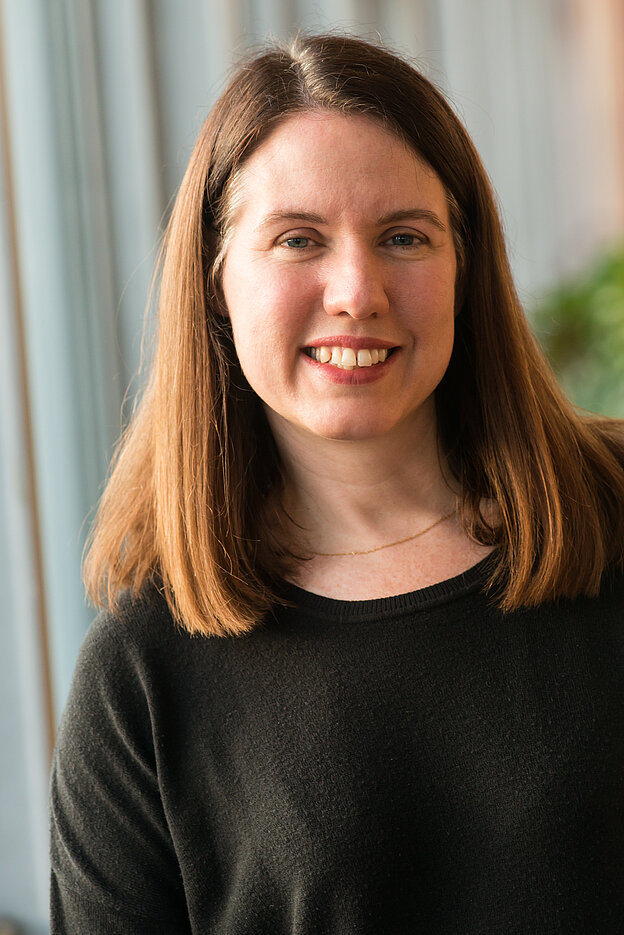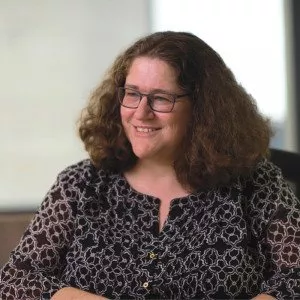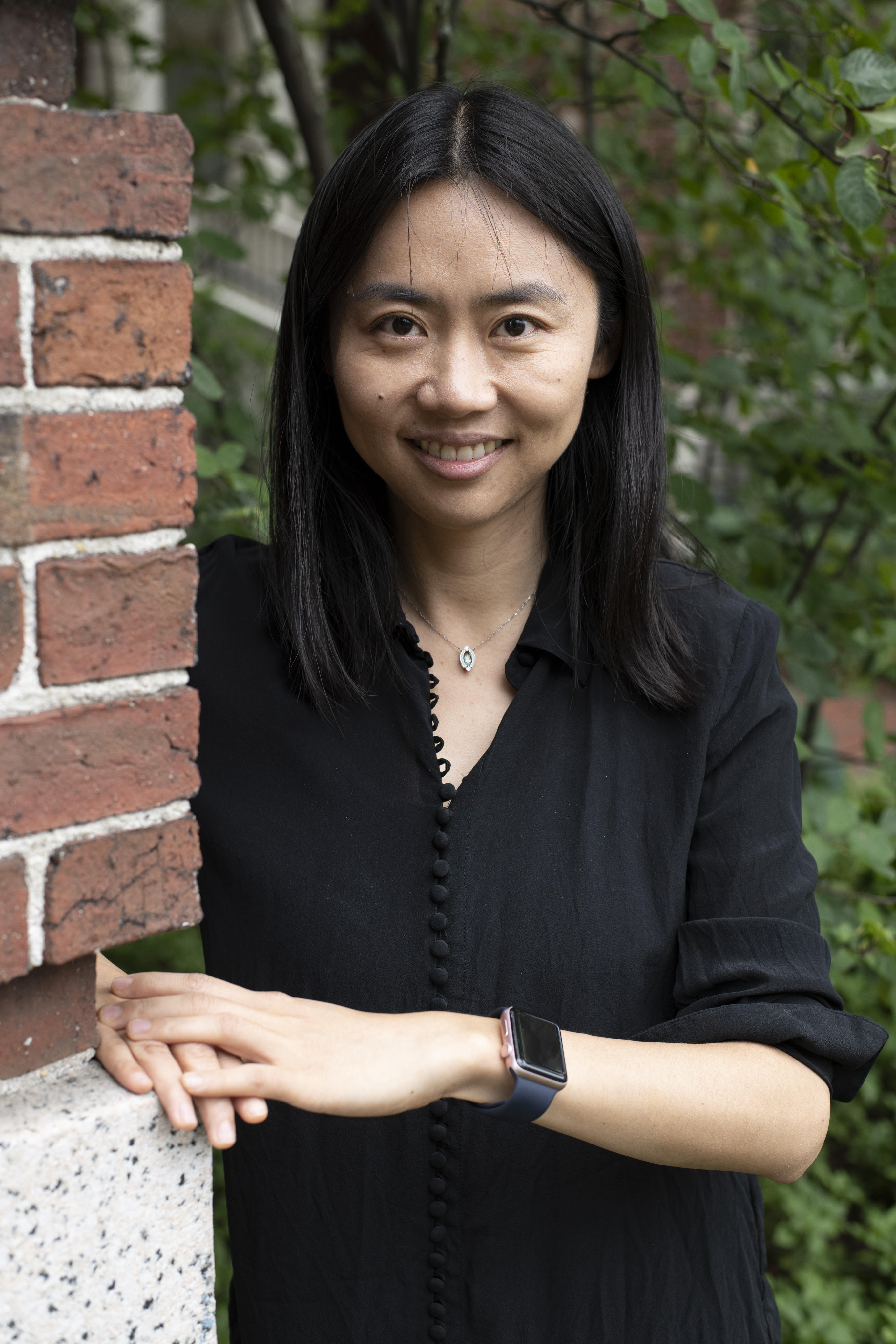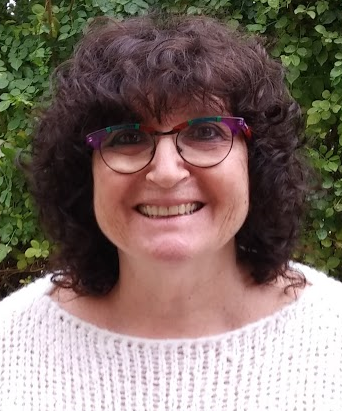Janet Kelso
 Max Planck Institute for Evolutionary Anthropology
Max Planck Institute for Evolutionary Anthropology
Germany
https://www.eva.mpg.de/genetics/staff/janet-kelso/
Introduced by: Anna-Sophie Fiston-Lavier, SFBI President, French Society of Bioinformatics
Time: Sunday July 23, 6:30 PM - 7:30 PM
Room: Lumière Auditorium
Unraveling the Human Past: Insights from Ancient DNA
The genome sequences of now extinct humans offer a unique opportunity to study the human past. However, reconstructing ancient genomes is complicated by the poor preservation of DNA retrieved from ancient samples. Technological advances in the retrieval and analysis of ancient DNA have now made it possible for us to reconstruct the genomes of several Neandertals, as well as to identify a previously unknown and now-extinct Asian hominin group related to Neandertals, who we call “Denisovans”. These archaic genome sequences have provided many insights into Neandertals and Denisovans, and have also revealed their interactions with modern humans. We have shown, for example, that gene flow occurred between archaic and modern humans, and have assessed the likely functional consequences of archaic DNA sequences in present-day people using publically available genome, gene expression, and phenotype datasets. I will highlight the role that archaic DNA has played in shaping the genetic landscape of contemporary populations, as well as describing some of the methodological challenges in the analysis of ancient DNA.
Biography
Janet Kelso leads the Computational Ancient Genomics research group at the Max-Planck Institute for Evolutionary Anthropology in Leipzig, Germany. Her research focuses on understanding human history through the study of the genomes of now-extinct humans including Neandertals and Denisovans. Her research group has contributed to the development of computational approaches for the analysis of ancient DNA, and to the retrieval and analysis of the first Neandertal and Denisovan genomes. Janet received her PhD in bioinformatics from the South African National Bioinformatics Institute at the University of the Western Cape under the supervision of Professor Winston Hide. She was awarded the L'Oréal-UNESCO/DST Young Scientist Award for her PhD research. Janet is the co-Editor-in-chief of the journal Bioinformatics together with Alfonso Valencia, as well as an Executive Editor of the journal Database. For many years she has been an active member of the Board of the International Society of Computational Biology and was named a Fellow of the Society in 2016.
ISCB Innovator Award Keynote: Dana Pe'er
 Chair, Computational and Systems Biology Program, Sloan Kettering Institute;
Chair, Computational and Systems Biology Program, Sloan Kettering Institute;
Scientific Director, Alan and Sandra Gerry Metastasis and Tumor Ecosystems Center;
Investigator, Howard Hughes Medical Institute
United States
https://www.mskcc.org/research/ski/labs/dana-pe-er
Introduced by: Alessandra Carbone, Conference Co-chair, CNRS - Sorbonne Université, France
Time: Monday, July 24, 8:45 AM - 9:45 AM
Room: Lumière Auditorium
Machine learning meets single-cell biology: Cellular dynamics and gene programs
Single-cell genomics is providing unprecedented views into the workings of cells and their interrelationships. Beginning with the conceptualization of cell states as residing along a phenotypic manifold and its representation as a neighbor graph, we will survey approaches to infer trajectories and cell-state transitions from this data. To understand dynamics along the manifold from snapshot data, we can model differentiation as a Markov process, thereby providing a continuous view of cell fate choices and enabling a quantification of cellular plasticity. We will demonstrate the versatility of this approach, provide cooking tips and pitfalls to avoid, and discuss computational challenges. We will also highlight the importance of understanding gene expression and regulation based on its structure in the data. To identify biologically meaningful gene programs, we leverage Bayesian matrix factorization, combining prior knowledge with data to summarize biological activity as a compact set of factors representing cellular building blocks. This presentation will cover several single-cell algorithms, including Wanderlust, Palantir, CellRank, Decipher and Spectra.
Biography
Dana Pe’er is an HHMI Investigator, Chair of the Computational and Systems Biology Program and Director of the Gerry Metastasis and Tumor Ecosystems Center at the Sloan Kettering Institute. The Pe’er lab has pioneered foundational machine learning approaches to derive cell states, trajectories and interactions from single-cell genomics and imaging data. They apply their tools to address questions in development, immunity and cancer, with a focus on plasticity, tumor heterogeneity, and tumor-immune interactions. Dr. Pe'er earned her PhD at the Hebrew University. She received the Burroughs Wellcome Fund Career Award, NSF CAREER award, NIH Director's New Innovator and Pioneer awards, Packard Fellowship in Science and Engineering, Ernst W. Bertner Memorial Award, ISCB Overton Prize Award and is a Fellow of the AACR Academy. She serves on the editorial board of Cell, leads an NCI Human Tumor Atlas Network center, and heads computational analysis for the Human Cell Atlas.
ISCB Overton Prize Keynote: Jingyi Jessica Li
 Professor of Statistics
Professor of Statistics
University of California, Los Angeles
Helen Putnam Fellow, 2022-23
Radcliffe Institute for Advanced Study at Harvard University
United States
http://jsb.ucla.edu
Introduced by: Martin Vingron, Chair, ISCB Awards Committee
Time: Tuesday, July 25, 8:45 AM - 9:45 AM
Room: Lumière Auditorium
Using Synthetic Controls to Enhance the Statistical Rigor in Genomics Data Science
The rapid development of genomics technologies has propelled fast advances in genomics data science. Although numerous computational algorithms have been developed to analyze genomics data, the statistical rigor of data analyses has been largely overlooked. Motivated by the use of negative and positive controls in experiments, I propose to enhance the reliability of data analysis by using synthetic controls generated from real data under specified hypotheses. I will demonstrate this strategy in identifying differentially expressed genes from bulk and single-cell RNA-seq data. Specifically, to support this strategy in single-cell and spatial omics data analysis, I will introduce our simulator scDesign3 for synthetic control generation. Moreover, to ensure computational efficiency, I will introduce a p-value-free strategy for high-throughput feature screening without requiring multiple rounds of synthetic control generation. Overall, using synthetic controls is an effective strategy to increase the statistical rigor of genomics data analysis and improve the reliability of analysis results.
Biography
Jingyi Jessica Li is a Professor in the Department of Statistics and Data Science at the University of California, Los Angeles, where she holds secondary appointments in the Departments of Biostatistics, Computational Medicine, and Human Genetics. She leads a research group called the Junction of Statistics and Biology, which focuses on developing interpretable statistical methods for biomedical data analysis.
Jessica received her Ph.D. from the University of California, Berkeley, and her B.S. from Tsinghua University. Her research interests include quantifying the central dogma, extracting hidden information from bulk, single-cell, and spatial multi-omics data, and ensuring statistical rigor in biomedical data analysis. She emphasizes using in silico negative controls to avoid false discoveries.
Jessica has received multiple awards in recognition of her work, including the NSF CAREER Award, Sloan Research Fellowship, Johnson & Johnson WiSTEM2D Math Scholar Award, MIT Technology Review 35 Innovators Under 35 China, Harvard Radcliffe Fellowship, and COPSS Emerging Leader Award.
Hanah Margalit
 Microbiology and Molecular Genetics IMRIC, Faculty of Medicine
Microbiology and Molecular Genetics IMRIC, Faculty of Medicine
The Hebrew University of Jerusalem, Israel
http://margalit.huji.ac.il
Introduced by: Christine Orengo, ISCB President University College London United Kingdom
Time: Wednesday, July 26, 8:45 AM - 9:45 AM
Room: Lumière Auditorium
Insights from RNA-seq experiments into post-transcriptional control mechanisms
The genomic revolution has led to the development of large-scale technologies that measure in one experiment cellular features at a genome-wide scale. One top technology is RNA-seq, usually used to compare gene expression between two cellular states, but variations of which have opened the door to study post-transcriptional regulation of gene expression at an unprecedented scope. In fact, the knowledge and understanding of different mechanisms of post-transcriptional regulation have advanced side by side with the progress in these technologies. In my talk I will highlight original angles of the RNA-seq technology and data analysis, along with the novel biological knowledge they have led to. These include: a variation of RNA-seq (RIL-seq) by which the post-transcriptional regulatory network of non-coding RNAs and their targets in bacteria is deciphered. Innovative analysis of RIL-seq data, leading to discovery of novel regulatory RNAs embedded within mRNAs. Identification of transcription termination sites by non-conventional analysis of RNA-seq read patterns rather than read counts. This approach enables exploiting the RNA-seq data to detect premature transcription termination sites with a regulatory role. These examples, as well as other examples from other studies, emphasize the power of tailored RNA-seq experiments and creative analyses of the data for expanding our understanding of the molecular mechanisms an RNA molecule is involved in.
Biography
Hanah Margalit is a Professor of Computational Molecular Biology at the Hebrew University of Jerusalem, Israel. She received her BSc in Mathematics and Biology and her PhD in Computational Biology from the Hebrew University. Her PhD research concerned mathematical modeling and simulation of molecular control mechanisms. For her postdoc she went to NIH, where she specialized in bioinformatics. When she returned to Israel she was among the first to develop this field within the scientific community in Israel. She was the first president of the Israeli Society of Bioinformatics and Computational Biology, was awarded the Landau Prize in Systems Biology, The Rothschild Prize in Life Sciences, Nature Award for Lifetime Achievement in Mentoring, and is an elected Fellow of the International Society of Computational Biology. Her studies concern integration of various types of genomic, transcriptomic and proteomic data, in order to understand the intertwining of different regulation levels in the cell. These include mainly transcription regulation by transcription factors and post-transcriptional regulation by small non-coding RNAs and ribonucleases. Among the contributions of the group is the first systematic discovery of novel small RNA-encoding genes based on the genome sequence, detection of mixed regulatory circuits involving various levels of regulation, the discovery of a novel immuno-evasion mechanism mediated by a viral miRNA, and the deciphering of post-transcriptional regulation networks of regulatory RNAs and targets, using state-of-the-art RNA-seq-based technologies.
ISCB Accomplishments by a Senior Scientist Award Keynote: Mark Gerstein
 Albert L Williams, Professor of Biomedical Informatics and Professor of Molecular Biophysics & Biochemistry, of Computer Science, and of Statistics & Data Science
Albert L Williams, Professor of Biomedical Informatics and Professor of Molecular Biophysics & Biochemistry, of Computer Science, and of Statistics & Data Science
Yale University
United States
https://medicine.yale.edu/bbs/computational/profile/mark-gerstein/
Introduced by: Lim Soon Wong, Conference Co-chair, National University of Singapore
Time: Thursday, July 27, 4:30 PM - 5:30 PM
Room: Lumière Auditorium
A Gradual Evolution in Bioinformatics Research
This talk will survey my lab's computational biology research from the 1990s to the present and touch upon the broader directions of the field. I'll start by discussing some early work on structure and simulation and how this transitioned into studying protein and gene networks and, eventually, human genome annotation with machine-learning models. Finally, I'll discuss some of our current work developing models for variant impact based on allele-specific binding and how this highlights the role of transcription-factor binding motifs that are particularly sensitive to mutation. I'll end with thoughts on where I think the field is going. In particular, I’ll discuss the importance of dealing with large amounts of private data and using digital sensors to phenotype individuals more accurately.
Biography
After graduating from Harvard with an AB in physics in 1989, Prof. Mark Gerstein earned a doctorate in theoretical chemistry and biophysics from Cambridge in 1993. He did postdoctoral research at Stanford and then came to Yale in 1997 as an assistant professor. In 2003 he became co-director of the Yale Computational Biology & Bioinformatics Program. Prof. Gerstein has published appreciably, with >600 publications, including several in prominent venues, such as Science and Nature. His research is focused on biomedical data science, and he is particularly interested in machine learning, macromolecular simulation, human-genome annotation, disease genomics, and biomedical privacy.

